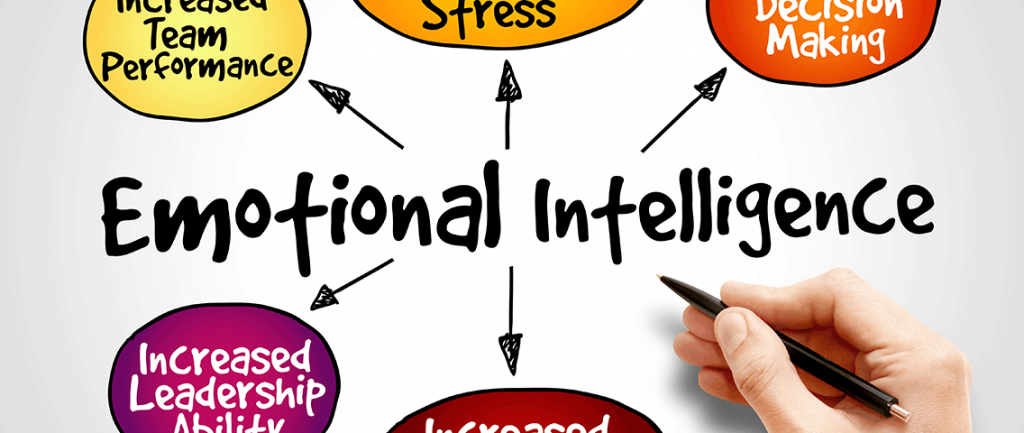Each of the attributes we’ve covered in this series on Emotional Intelligence (EQ) builds on the others. That is certainly the case with this fourth and final installment where we cover the element of Relationship Management. Skills developed in the previously discussed areas of social awareness, self-management, and self-awareness all feed into success in this last area.
Relationship management is the ability to build value-adding relationships with others. A person strong in this trait understands and realizes the value of building relationships even with people with whom they don’t get along.
People with high relationship management abilities make everyone they interact with feel they matter and are valued. When they communicate with someone who has failed to complete a task or meet the expected delivery date or level of quality, it is done in such a way that the person knows where they missed the mark, but it is not done in anger. Relationship management requires taking intentional steps to ensure these positive connections are healthy and beneficial to both parties.
Employees need to understand how they can influence positive connections and teamwork in their personal and professional relationships.
Author Daniel Goleman, a recognized authority on EQ, says the competencies involved in managing relationships include:
- Developing others
- Inspirational leadership
- Change catalyst
- Influence
- Conflict management
- Teamwork and collaboration
These competencies are often viewed as leadership skills, but they are also relevant outside of leader-follower relationships. For example, inspirational leadership could apply to how you inspire and motivate a family member, a friend, or a peer at work. Change catalyst could apply when an employee finds a way to improve an existing process and needs to get their peers or managers on board with the change.
Conflict management is about learning to see conflict as an opportunity to grow closer to others. Conflicts and disagreements are inevitable in human relationships. Two people cannot possibly always have the same needs, opinions, and expectations—but that doesn’t need to be a bad thing. Resolving conflict in healthy, constructive ways can strengthen trust between people. When conflict is not perceived as threatening or punishing, it fosters freedom, creativity, and safety in relationships.
One of the most toxic ways that poor relationship management manifests in the workplace is through gossip. Talking about others behind their backs is common practice in many workplaces, but it kills collaboration and culture. Leaders who tolerate this behavior are reinforcing low levels of relationship management and allowing it to hold back their organization.
There are many options for ways to impact the health of relationships, but Goleman suggests that assuming goodwill in others’ intentions is one key. We can all struggle to see the positive intentions of others when their behavior results in us being hurt or feeling taken advantage of. When you consciously choose to assume others’ intentions are positive, you are better able to offer constructive feedback when issues arise. By doing this, you’re not ignoring the problem and you’re not attacking the other person—which is how strong, trusting relationships are built.
Zack Hudson, in a recent Passing the Baton Leadership Podcast on relationship management, offers the following four tips to increase your relationship management.
- Back your decision up. When you make a decision, especially if you know it may not be a popular one, explain the whys behind it so that others understand where you are coming from. Also be open to listen to their concerns and be prepared to change if needed.
- Be proactive with the inevitable. When you see a conversation that needs to happen inevitably, the time to connect on it is now. Time has a way to fuel the problem and it ends with you and/or the other party boiling over. Hudson says, “I would rather take on a small problem than a work-stoppingly large problem that it morphs into later.” When you have these conversations, be direct without emotional attachment and be sure to include your strengthened empathy and listening skills that you’ve picked up.
- Build trust. A couple of ways to build trust in a relationship is to first be willing to accept feedback in a constructive way. When you show that you can’t take feedback well, you lose the trust of the other person and they no longer want to help you get better. The second is to own your mistakes and failures. If you are a leader you may have to own a mistake that you didn’t even make the decision on. Being willing to do the small things like apologize, say thank you, and (show) appreciation go a long way.
- Acknowledge where the person is. Someone comes to you and tells you what they are going through and you do your best to quickly move on from the conversation. It may be because it makes you uncomfortable or you don’t know what to say. Simply acknowledging the emotion or struggle is a great starting point.
Creating a secure, supportive, and compassionate work environment may not sound like a typical ambition for business leaders but building this type of culture is what improves creativity, collaboration, and productivity. And a culture like that is a critical element in how you attract and retain talented, purposeful people.
More and more, research is proving that high levels of emotional intelligence are a critical factor in effective teamwork, improved decision making, and healthy organizational culture. In a recent article for Inc., Author Jessica Stillman writes that new research conducted by Harvard researchers and released by the National Bureau of Economic Research showed that the best predictor of outstanding performance by groups was having members with particularly high levels of emotional intelligence. The researchers found that those with high EQ were far better at keeping their teams on task and working efficiently. They also seemed able to motivate their team members to work more diligently when completing individual work. These results aren’t outliers. Research out of Columbia University suggests that the return on investment in improving your EQ is far higher than that for working to get smarter, and a recent Yale study showed that those with high emotional intelligence make dramatically better decisions.
Emotional intelligence can be nurtured and strengthened throughout our adulthood, with immediate benefits to our health, our relationships, and our work. Hopefully, this series has provided some insight into the elements of EQ and the benefits it offers for your people, yourself, and your organization, along with a view as to how you can begin to improve your emotional intelligence.
EQ is not just for managers and leaders … and the impact to your company’s culture and performance when having a team of emotionally intelligent people may just surprise you.



